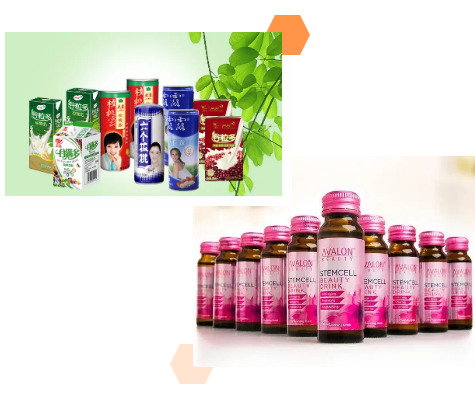How to sterilize plant protein drinks?
Date:
2022-06-25
"Sterilization" not only refers to the post-sterilization of beverages but should also include the sterilization of equipment, raw materials, packaging, and even the cleaning and hygiene work of the production site and personnel.
"Sterilization" not only refers to the post-sterilization of beverages but should also include the sterilization of equipment, raw materials, packaging, and even the cleanliness of production sites and personnel. Plant protein beverages themselves are excellent microbial culture media. Experiments have shown that sterilized soy milk exposed to air for 20 minutes can lead to bacteria reaching uncountable levels. This indicates that if any production link does not implement strict sterilization, it may lead to beverage deterioration, such as a decrease in pH, layering, sedimentation, and spoilage.

People often do not pay attention to the strict disinfection and sterilization of equipment, containers, and pipelines. After use, they may only rinse with hot water or even cold water before stopping production. We believe that protein beverages should ideally be produced continuously. If production needs to be interrupted, within 24 hours, all parts that come into contact with the liquid should be immersed and rinsed with boiling water for more than 10 minutes after stopping and before restarting. If it exceeds 24 hours, it must be rinsed with 65°C, 2% caustic soda solution for more than 5 minutes (if there is scaling, it should be cleaned with 2% nitric acid solution for more than 5 minutes after rinsing with caustic soda), and then rinsed with boiling water for 10 minutes before being put back into use.
The sterilization and cleaning of packaging containers are also crucial. Especially for glass bottles, which are often recycled, residual plant protein beverage inside can harbor uncountable bacteria. They must be soaked and rinsed with 65°C, 2% caustic soda solution for 5 to 10 minutes, or with 5% caustic soda solution at room temperature for more than 20 minutes.
In summary, any potential pathway for bacteria to enter the beverage must be eliminated to produce a qualified product. Some believe that since high-temperature sterilization will be conducted at the end, the production process can be somewhat careless. However, it should be noted that bacteria may already be uncountable during the production process, and high-temperature sterilization cannot achieve absolute sterility, making it inevitable for bacteria to exceed limits after the beverage is stored for a period.
Understanding the importance of sterilization, as well as the significance of temperature and time, becomes clear. The purpose of controlling temperature and time is to manage microbial growth and prevent the deterioration of beverages during production. If the microbial count in the liquid exceeds standards during production, it will be difficult to ensure the quality and shelf life of the final product. We can control temperature and time to ensure that microorganisms do not proliferate excessively during production.
The optimal temperature for microbial growth is around 25 to 35°C. An increase in temperature will inhibit microbial reproduction; high temperatures can lead to the 'thermal death' of most bacteria.
At temperatures above 70°C, most psychrophilic and mesophilic bacteria can be killed, and the activity of thermophilic bacteria is also inhibited. Therefore, during production, the temperature of the liquid should be raised to above 70°C as early as possible and maintained above 70°C. This should be our basic requirement for production temperature; since the longer the time, the greater the possibility of microbial contamination, the shorter the production time, the better. The time from grinding to entering the sterilization pot should not exceed one hour, which should be our basic requirement for production operation time.
Some enterprises have mismatched production equipment; the equipment for earlier processes is small while the sterilization pot is too large, causing the liquid to be left for a long time before filling a pot, resulting in extended time and decreased temperature, thus the beverage is always poorly made. It is recommended to strengthen equipment matching, keep batch sizes small, maintain a fast pace, and ensure high temperatures to produce good plant protein beverages.


Zhucheng lier Machinery Co., Ltd
Domestic excellent food, beverage, medicine and other fields of high temperature sterilization equipment, broken bag flotation drying line equipment suppliers and overall solution service providers.
Company Phone:
+86-182-6566-6762
National Service Hotline:
www.lretort.com
Company E-mail:
56313324@qq.com
Company Address:
Middle Section of High-tech Park Industrial Avenue, Mizhou Street, Zhucheng City

mobile phone station
Powered by 300.cn SEO Tags Privacy Policy

